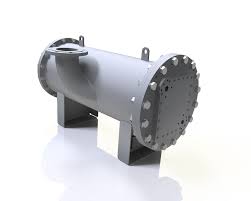COMPRESSOR COOLER
Compressor Cooler, also known as a compressor refrigerator or compressor-driven refrigerator, is a type of refrigerator or cooler that operates using a compressor to compress and circulate refrigerant gas. This technology is commonly found in household refrigerators and portable refrigerators or coolers used for camping, RVs, boats, and other outdoor activities.

KEY FACTORS
- Power Consumption Options (12V DC, 24V DC, 120V AC): Compressor coolers can operate on different power sources, including 12V DC (commonly from vehicle batteries), 24V DC, or 120V AC (household power). This flexibility allows them to be used in various settings.
- Size and Dimensions: Choosing the right size involves balancing portability with capacity. Smaller units are more portable but offer less storage space, while larger units provide more capacity but may be less convenient to transport.
- Quality of Insulation: Effective insulation plays a crucial role in minimizing heat transfer and maintaining internal temperatures. High-quality insulation helps the cooler operate efficiently and reduces energy consumption.
- Durability of Components: The durability of components like the compressor and housing affects the overall longevity and reliability of the cooler. High-quality materials and construction contribute to a longer lifespan and fewer maintenance issues.
- Cooling Capacity: Measured in liters or cubic feet, cooling capacity indicates how much volume the cooler can effectively cool or freeze. Choosing a suitable capacity depends on the intended use and storage requirements.
- Noise Level and Weight: Considerations such as noise level (measured in decibels) and weight impact user comfort and portability. Lower noise levels are preferable for quieter environments, while lighter weights are easier to transport.
- Warranty Period and Ease of Maintenance: A longer warranty period provides peace of mind regarding potential repairs or replacements. Ease of maintenance, including access to components for cleaning and servicing, simplifies upkeep and extends the cooler’s lifespan.
- Energy Efficiency: Assessing energy efficiency helps manage operational costs. Cooler models with higher energy efficiency ratings consume less power, reducing long-term expenses associated with operation.
APPLICATIONS ON COMPRESSOR COOLER
- Efficient cooling capability
- Maintains consistent temperatures
- Suitable for cooling and freezing
- Operates effectively in varying ambient temperatures
- Adjustable temperature settings for flexibility
- Reliable performance and durability
